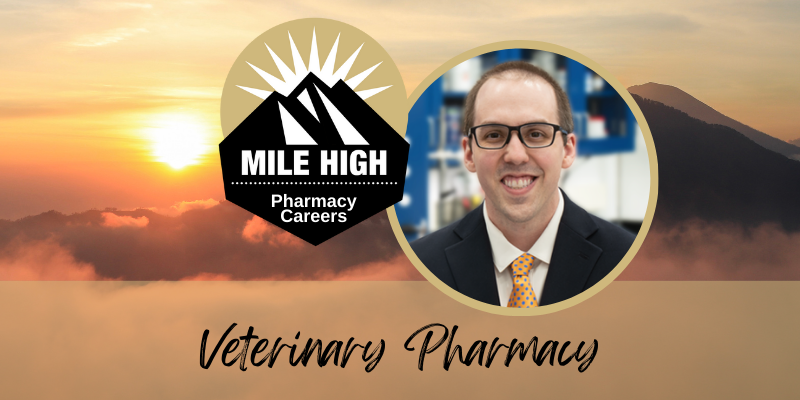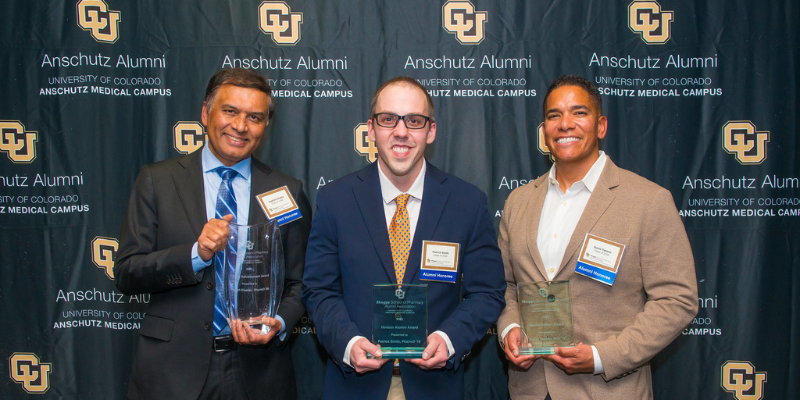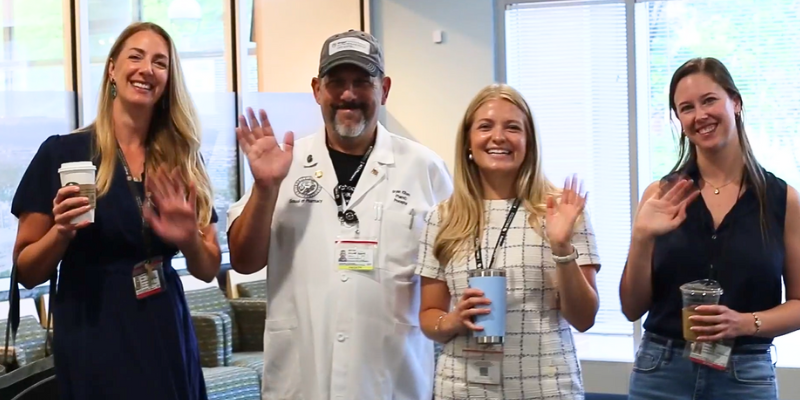In the fall of 2022, Sydney Broyles found herself at CU Pharmacy getting a Master’s in Pharmaceutical Sciences, on the Pharmacokinetic (PK) and Pharmacodynamic (PD) track. PK studies a drug’s course of action in the body, and processes of absorption, distribution, metabolism, and excretion; PD examines a drug’s effects and mechanism(s) of action. PK and PD are crucial to understanding every stage of drug development.
Broyles, a brilliant and soft -spoken student, says she originally came to Denver because she loved the location and then she found CU Pharmacy. Or rather, she found Melanie Joy, PharmD, PhD. Dr. Joy is a pharmacy professor, Director of the Joy Lab on Kidney Disease Pharmacology, Director of Innovation and Commercialization for CU Pharmacy, Director of Entrepreneurship Education for the SPARK/REACH Program, and had an integral role in developing the Master of Science PK-PD program. Additionally, she was instrumental in developing relationships with the technology company Certara, Inc., leading to the designation of CU Pharmacy as a Center for Excellence for Model-Informed Drug Development. You could say that Joy wears (and owns) a lot of hats.

Sydney Broyles collaborates with Dr. Melanie Joy in the Joy Lab. |
“I found out that CU’s [pharmacokinetics] program is designated as a Center of Excellence, and that piqued my interest. But when I started working with Dr. Joy, I found something I really enjoyed,” Broyles said.
In the fall of 2023, Broyles was ready to do two things: take her scheduled pharmacokinetics class and determine a project for her master’s thesis.
“Dr. Joy teaches that class,” Broyles said. "We talked, and she decided that she would teach me in her lab so I could graduate on time.”
Joy also had a suggestion for a thesis topic. Her lab had some data from a study on the therapeutic rituximab, a monoclonal antibody usually given through IV infusion to patients with non-Hodgkin’s lymphoma, leukemia, and autoimmune diseases including rheumatoid arthritis, among others. Rituximab is FDA approved for these specific uses but is often prescribed off-label to treat membranous nephropathy, a type of autoimmune kidney disease that results in the appearance of large amounts of proteins in the urine. Treating membranous nephropathy is incredibly important, because kidneys are part of the body’s filtration system and kidney failure is fatal without treatment. Joy’s dataset was a study on using rituximab and included data on its off -label use in patients with membranous nephropathy. Joy, along with other team members in the lab, suggested ways Broyles could use this for a thesis.
Broyles had a different idea.
“The thing about Sydney,” Joy said, “is that she reviewed the dataset, went home, and came back with a totally different way to model rituximab than what we were all thinking. Her approach to tackle this topic was original. One could say that Sydney was innovative in her approach to solve a vexing problem.”
Broyles’ project idea – to conduct a population pharmacokinetics study on rituximab as a treatment for membranous nephropathy – was something that had never been done, but that she was able to do with the existing data. Population pharmacokinetic studies are analyses used to understand differences in target patient populations to help in discovering more effective and/or safer medication administration. The models that are developed allow for disease specific characteristics or covariates to be incorporated in order to personalize dosing regimens and to predict dosages for similar future patients in the specific population. Broyles’ model could help optimize rituximab dosing in this already high-risk population.
Her hard work is not without payoff.
“We are going to submit the research work for publication,” Joy said. “This is a very impressive study that could lead to better treatment outcomes for patients with membranous nephropathy.”
Broyles’ next step is to find a job, and while Denver originally attracted her to CU, she is not stuck on Colorado for her job search.
“I am looking anywhere,” she explained. “I want to work for a large pharmaceutical company, because studies like this have patient impact, and I want to be able to improve patient care.”
In 2024, Sydney Broyles has found herself on the path to her career.




